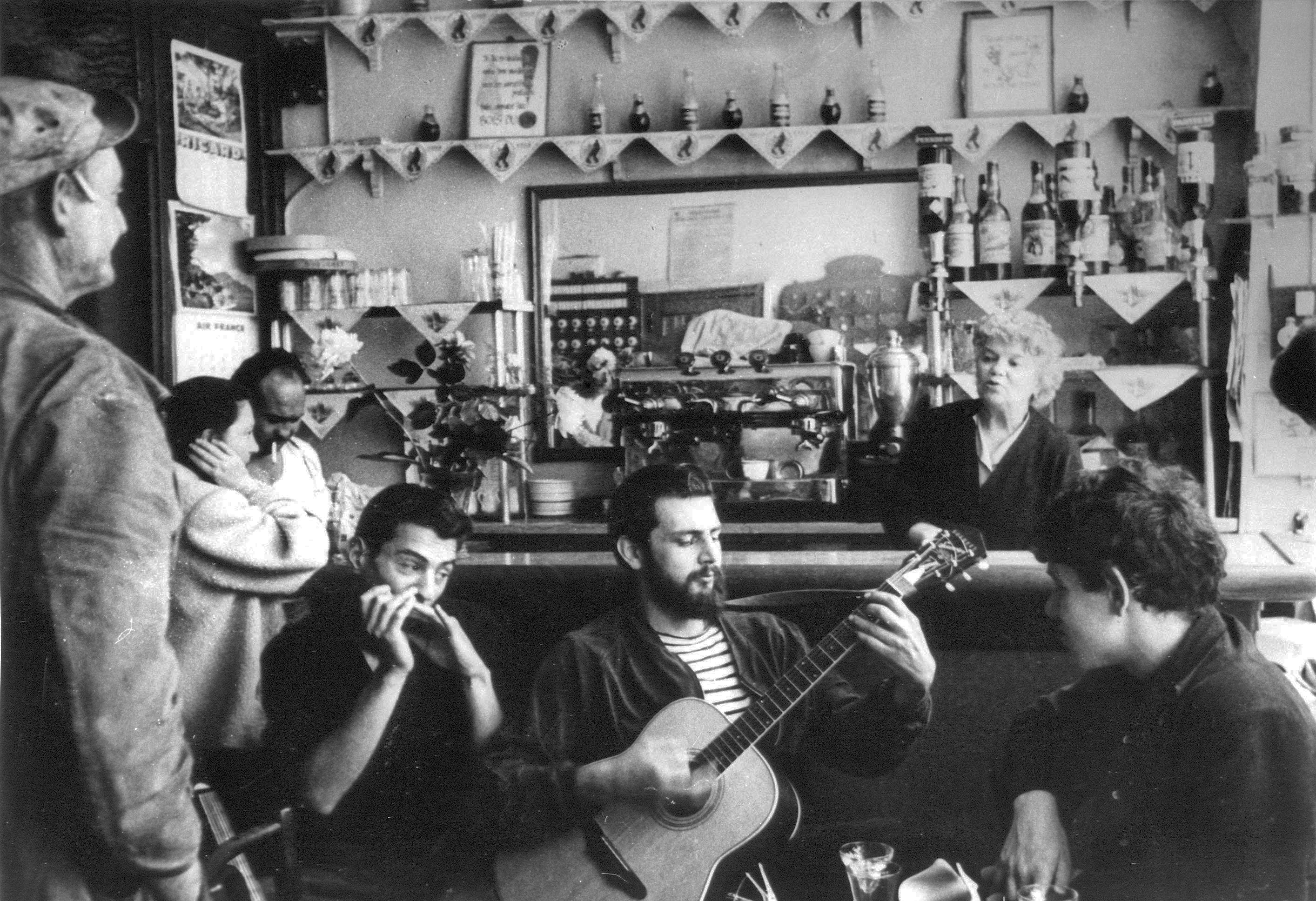Paris, 1957 - the Beats, progenitors of the great 60's cultural movements....
Just finished watching a wonderful documentary, filmed in 2011, at the old "Beat Hotel" in the Latin Quarter of Paris, where in the late 1950s there gathered an extraordinary collection of wayward geniuses including Alan Ginsberg, author of "Howl", ex-criminal wild-man poet Gregory Corso, and William Burroughs ("The Naked Lunch"), followers of Dadaism and inventors of the cut-up technique of novelising.
It's available on Instant Netflix, here.
The film, directed by Alan Govenar, uses an artful mix of old photos, recent interviews with very smart people, black-and-white recreations of scenes using actors to represent the Bohemian originals, and special effects, to show the importance (and lunacy) of this amazing gathering of souls.
One interviewee, Barry Miles, is a vastly prolific author on the counterculture, involved among many other things, with the Beatles and the London underground paper “International Times”. He's the author of a fascinating book called The Beat Hotel: Ginsberg, Burroughs, and Corso in Paris, 1958-1963, and he has this to say:
“... the important thing about the Beat generation was that they looked at life – all of life – as subject matter. Poetry was no longer just daffodils..... they used anything, dirty old shoes, unspeakable sexual acts, they discussed their bowel movements and they discussed the use of drugs – anything and everything became their subject matter.
“They really set about quite intentionally, breaking through the Saturday Evening Post view of middle-class suburban America. Life after Auschwitz and the Holocaust, and after the atomic bombs on Hiroshima and Nagasaki could never be the same, you can't just go back to the old set of values, that's something that had to change. They were looking for answers.”
The tiny, scruffy and above all cheap hotel, at 9, Rue Git-Le-Coeur, was run by an amazing couple, M. and Mme. Rachou, who seem to have gained their love of the gift of freedom from time spent in the WW2 French Resistance.
The Beats' importance, as Barry Miles describes it, was that they “gave a direction to the next generation and to the Hippies, to the young people and the youth movement of the 60s”
“The legacy of the Beat Hotel, I think, was that you don't need a lot of money, or luxury, or comfort, to create. It's the sheer creative energy of endless talking and experiments and projects. By giving them that kind of freedom, they produced incredible works – Ginsberg's “Kaddish”, Burroughs' “The Naked Lunch”, Gregory Corso's [poem] “Bomb”, all of these things came out of this insignificant little hotel on the Left Bank – largely because the conditions were right, and it was Bohemia working at its best.”
And Jean-Jacques Lebel, a notable artist in his own right, who translated the Beats' most notable works into French, adds “one of the proofs of that was that in May '68, which was the most important General Strike in the whole history of capitalism, and a mental upheaval, a mental insurrection, not only a General Strike, … there were bits of poems of Allen Ginsburg written on the walls of Paris. I mean that was the living proof that something had been transmitted of the magical moment of the poetic creativity....
 |
| A shot from David Cronenberg's film of William S. Burroughs' "The Naked Lunch. |



Thanks for letting me know about this movie. I don't have netflicks, but I'll see if I can find it elsewhere.
ReplyDelete